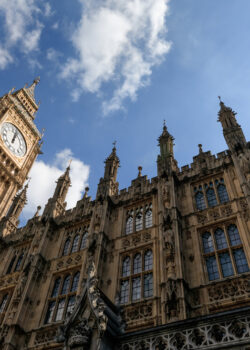Rating the ratings
Do companies care about ESG ratings? That’s not only the title of a new piece of research but the answer seems to be: yes, they care very much and respond ultra quickly when ratings criteria are changed, presumably to ensure their scores stay high.
The conclusions come from a pair of US academics, who looked at the way companies respond to changes in methodology from Sustainalytics, a key ratings provider.
It seems when Sustainalytics fiddles with criteria, companies respond fast—often within a month.
What explains this? The profs consider a number of explanations but settle on this: companies pressure the ratings agencies when they come looking for feedback.
“The results are consistent with this explanation,” write the researchers. They add: “Overall, the results show how firms influence their ESG ratings when they participate in the rating process. We conclude that firms ‘manage’ their ESG ratings to appeal to ESG-focused stakeholders.”
Glad that’s been cleared up.
Take the weather with you?
Are you an auditor, fed up with the gloomy faces of your clients here in the UK every time you walk in the door? Well, you can now take your qualification to the land of Kiwis and the All Blacks because watchdogs in Auckland and London have signed a deal recognising each other’s audit qualifications. (Cue rush to the airport to get on the first plane out of the UK).
Let us remind you, however, that New Zealanders in the “city of sails” (pictured) are likely no more happy to see auditors than clients anywhere else. Haka optional…
Tread carefully
And here’s an example of why auditors can make their clients nervy. The Times reports this week that shares in carpet maker Victoria, supplier of red carpets for Royal nuptials, “slumped” after the company posted an annual report that included a “qualified” audit report.
Auditors Grant Thornton expressed concern that “adequate accounting records have not been kept” while GT has “not received all the information and explanations we require for our audit”. It’s a tough job and somebody definitely has to do it.
I’m O&K, you’re not O&K
Not exactly about corporates—but worth noting all the same—is a new project over at the Institute of Business Ethics (IBE) that will be delving into the ethical reputational risks of UK law firms representing “oligarchs and kleptocrats”.
IBE will run a taskforce exploring how the risks of representing O&Ks can be “reconciled with rights to representation”.
“The formation of the taskforce follows the high-profile exit of many firms from Russian business following the invasion of Ukraine, and long-standing concerns by the UK, EU and US governments that lawyers may be playing a role in enabling overseas corruption,” the IBE says. It adds: “Civil society representatives have warned that UK legal services are too accessible to corrupt capital…”. Can of worms well and truly opened.
Suits and sustainability
Lastly, just in case you’ve been keeping an eye on the Corporate Sustainability Reporting Directive (CSRD). There’s now a warning that the EU’s totemic piece of legislation, aimed at helping ensure companies report their sustainability sins, could prompt a wave of litigation.
Legal savants from US law firm Skadden, Arps, Slate, Meagher & Flom (yes, it is a real law firm, we didn’t make it up) warn that the “granular” information demanded by CSRD “could feed litigation in the US if the disclosures appear false or misleading, or are inconsistent with disclosures in other jurisdictions”.
Don’t want to spoil your moment here, chaps, but Board Agenda has been reporting this risk since CSRD was just a gleam in the eye of a junior Brussels fonctionnaire. Well, not quite that long, but anyway, we’ve been telling you here, here and here.
You can’t say we didn’t warn you.





